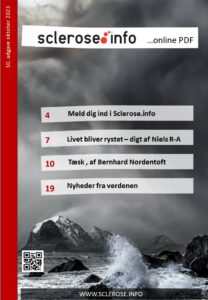B-cells ‘responsible for MS activity’ identified (12/11/15)
A study from researchers at McGill University in Canada claims to provide new insight into the role of B cells and their complex interaction with other immune cells in the context of MS. The team state that their findings hold great potential for the development of the next generation of targeted treatments that could one day provide a cure for this debilitating disease. The study is published in the journal Science Translational Medicine.
Previous studies show that more than 90 per cent of MS patients have increased intrathecal production of immunoglobulins. Because of this, research focused on the humoral immune system for many years. Recently, trials have substantially broadened the medical community’s view on the pathogenesis of MS. While research focused predominantly on T lymphocytes as the key cell type to mediate inflammatory damage within central nervous system lesions, emerging evidence suggests that B cells may play an important role both as precursors of antibody-secreting plasma cells and as antigen-presenting cells for the activation of T cells; with the presence of plasma cells, B cells, antibody and complement being found in the pathology of MS. Researchers have also recently discovered that different types of human B cells exist with some B cells being shown to promote inflammation, while others are shown to actually limit inflammation. The current study has implicates a subset of B cells, the GM-CSF producing B cells, as a key contributor in the pro-inflammatory immune responses at play in MS.
The current study first examined samples of MS patients comparing them to healthy subjects. Results show that GM-CSF producing B cells were more frequent and more prone to activation in MS patients, suggesting that this subset of B cell is able to activate pro-inflammatory responses of myeloid cells of the immune system.
The lab confirmed these results in patients, with data findings showing that after B cell depletion Therapy (BCDT), the myeloid cells became much less pro-inflammatory, meaning that BCDT may work in part by decreasing the number of GM-CSF-producing B cells and in turn limiting both myeloid cell and T cell contribution to new disease activity. The group conclude that their study is significant in discovering a new way by which B cells can contribute to abnormal immune responses in MS which reinforces the rationale for the use of B cell depletion therapy.
The team have surmised that by better identifying the particular subset of B cells responsible for new disease activity, the medical community can look forward to more selectively targeting the bad B cells while leaving good B cells intact. For the future, the researchers state this is important because B cells normally play key roles in the immune system, so more selective therapies offer the prospect of decreasing the risk of impairing the patients’ immune system in the long run.
Source: Healthinnovations © 2010 - 2015 Michelle Petersen (12/11/15)






